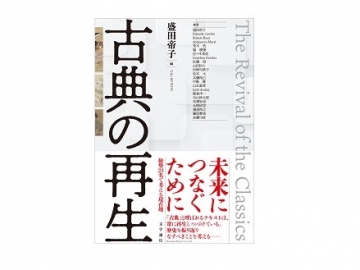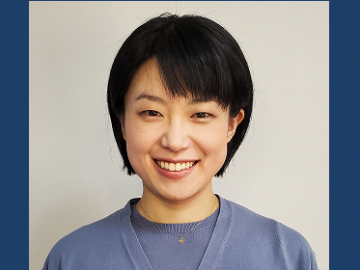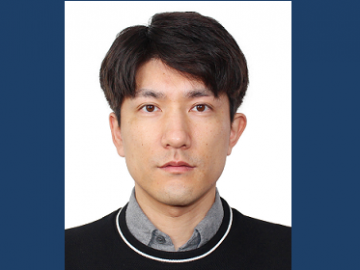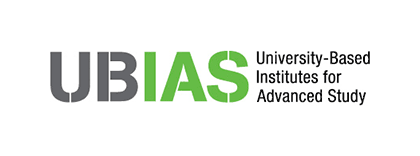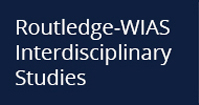Researchers
In 2017, we welcomed eleven new members into the Institute. Each of them briefly introduces his/her research fields.
ISHIKAWA, Mai
What is the nature of a stock corporation? The question has haunted decades of generations, and has led to the classical debate which opposes the contractual approach to the institutional approach. Far from intending to give an end to the debate, my research focuses on its true meaning: to what extent legal problems concerning stock corporations can be considered independently of the human components.
KASAHARA, Akitada
My research filed is corporate finance, asset pricing, and game theory. I have been working on 1) a dynamic capital structure model based on trade-off theory, 2) contractual externalities and dynamic security design, 3) efficient market design of OTC markets, and 4) equilibrium uniqueness in certain dynamic games.
KITAMURA, Miho
My research interests concern how implicit and explicit physical properties (e.g., posture, voice) modulate our communication process. We don’t pay attention these physical properties in our daily life. However, they play an important role for impression formation and making decision. They also modulate our internal state, and then these modulations change our communication again. I aim to understand the explicit and implicit aspects of this process using cognitive scientific approach.
SAI, Yukari
My research focuses on social interactions through food and eating practices. I am particularly interested in exploring everyday food consumption and identity in Asia. Based on ethnographic fieldwork, I will explore the globalization of halal matters, which includes standardization and diversification, and its impact upon our everyday lives.
SANO, Katsuhiro
I am investigating temporal advances in technology and function of prehistoric stone tools and the relationship with human evolution to better understand the distinctive abilities of Homo sapiens. Currently, I am focusing on the emergence of the complex projectile technology using spearthrowers and bows-and-arrows and try to detect the origin and dispersal process of the complex projectile technology.
DANDOY, Régis
Régis Dandoy has a PhD in Political Science from the University of Brussels. Before moving as assistant professor at Waseda University, he was lecturer and research fellow at the University of Zurich, FLACSO-Ecuador and the University of Louvain. His main research interests deal with comparative politics, federalism and decentralization, regional politics, sub-national elections and party manifestos. His current research deals with the comparative analysis of executive and legislative elections at national and regional levels.
CHESNOKOVA, Tatyana
My research focuses on the issues in the areas of international trade and development economics.
The aim of my current project is to understand the effect of globalization on renewable resource management such as fisheries. I and my coauthor conduct an empirical examination of fisheries access agreements on a global scale which will allow us to systematically distinguish the key determinants of these agreements and contrast them to the determinants of fish-product trade flows.
TOMINAGA, Yasutaka
My research interest is in the field of international relations, with a specific focus on political violence such as terrorism and civil wars. My research seeks to explore the logic of political violence and the impact evaluation of counter-insurgency policy. Methodologically, I am particularly interested in spatial econometrics and the application of Geographic Information Systems (GIS).
NAKA, Makoto
Coulomb interaction between electrons in materials is a source of various physical properties including magnetism. On the other hand, in materials with “valence skipping elements”, which avoid specific valence state, the interaction turns into attractive, and it brings about novel physical properties such as negative thermal expansion. I‘m making a study aimed at elucidating the new physical properties and discovering new functionalities by utilizing mathematical approaches and computer simulations.
BREHM, William
Will Brehm is an Assistant Professor at the Waseda Institute for Advanced Study, Waseda University (Tokyo, Japan). His research interests focus on the intersection of comparative education and international relations. He is currently conducting a research project that explores historical memory and schooling across Cambodia, Laos, Myanmar, Thailand, and Vietnam. He also conducts research on higher education regionalization in the Asia Pacific, consults for the World Bank in Cambodia, and hosts a weekly podcast on education, globalization, and society called FreshEd.
YAO, Fumi
In the Mūlasarvāstivāda Vinaya, the monastic law code of one school of Indian Buddhism, there are embedded many sūtras that convey doctrinal teachings. My project is a search for these sūtras in the extant Vinaya materials, which are preserved in Sanskrit, Tibetan, and Chinese. Through the extraction of these sūtras and analysis of their context, I would like to elucidate what was in the sūtra corpus of this school, the majority of which is now lost.
Activity
Seminars by Professor Mamoru Kaneko – “Logic and Game Theory,” and “Sharing Experiences from Interdisciplinary Research” (May 16, 2017)
Assistant Professor Makoto Fujiwara
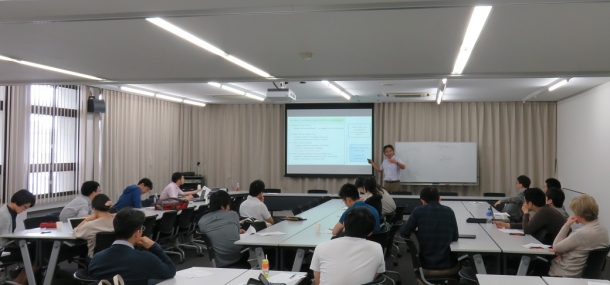
WIAS Seminar
The Waseda Institute for Advanced Study seminar “Logic and Game Theory,” as well as a lunchtime seminar “Sharing Experiences from Interdisciplinary Research,” were held at the Waseda Institute for Advanced Study (WIAS) on May 16, 2017. The speaker for both seminars was Professor Mamoru Kaneko (Professor, Faculty of Political Science and Economics, Waseda University), a leading expert in the interdisciplinary research of mathematical logic, game theory, and political science and economics.
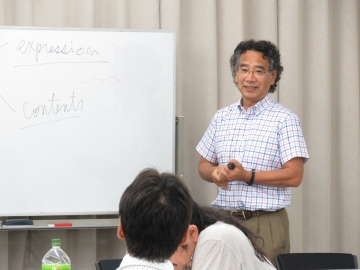
Prof. Mamoru Kaneko, answering to a question
The WIAS seminar on “Logic and Game Theory” was attended by more than 20 researchers, students, and experts from within and outside Waseda University, who are engaged in various fields of research including mathematical logic, game theory, economics, philosophy, psychology, political science, law, artificial intelligence, and computer science. Participants engaged in a lively discussion from beginning to end in a relaxing atmosphere. During the seminar, Professor Kaneko explained, using specific examples in game theory and in a way that was easy to understand, how symbolization that resembles incoherent dialogues and the problem of interpreting such symbols have emerged as a serious problem in game theory and economics. The innovative aspect of Professor Kaneko’s research lies in its elaborated treatment of the problem of symbolization and interpretation of symbols that arise in game theory and economics, through the application of mathematical logic. Through the seminar, participants gained an understanding of the usefulness of incorporating the perspective of mathematical logic—which considers symbols and their meanings separately—into other disciplines, and picked up many hints for applying mathematical logic to other disciplines.
The lunchtime seminar titled “Sharing Experiences from Interdisciplinary Research” offered a space and time for sharing the satisfaction, enjoyment, difficulties, and hard work involved in interdisciplinary research. It began with a self-introduction by all the participants, including WIAS researchers and associates, followed by sharing of individual views and awareness of problems regarding their fields of research and cross-disciplinary research. After that, Professor Kaneko spoke about his research experiences, and about interdisciplinary research. In the final part of the seminar, all the participants engaged in an open and candid discussion. During the discussion, the topic of the possibility of applying mathematical logic to many different disciplines came up; while there are many merits in applying mathematical logic to many fields other than game theory and economics, there are several difficulties to actually doing so. The participants reaffirmed this situation, and had a good opportunity to think about solutions to this problem. They were also able to discuss freely about topics that are usually difficult to talk about during academic conferences and research seminars, such as perspectives of research, creating environments for interdisciplinary research, and the research interests of mathematicians, etc. The discussion made this seminar very fruitful and meaningful.

Dr. Fujiwara, facilitating the lunchtime seminar (in the middle)
WIAS brings together researchers from a wide range of research fields and of different backgrounds; moreover, depending on their respective research communities, there are various differences apart from the contents of their research, from the common practices, research methods, and language used, to the presentation methods of the achievements. Even if the research problems and origins are similar, there are often cases where research collaboration becomes problematic due to such differences in culture. To achieve mutual cooperation and harness the various differences as strengths, opportunities such as these two seminars above that facilitate research exchanges among researchers of WIAS, and which serve to deepen mutual understanding with other partners from and outside of Waseda University, continue to be important going forward.
Exploring the Lifestyles of People and Animals in the Hinterlands of Asia -Looking back on fieldwork conducted in the western region of Mongolia in 2016-
Assistant Professor Takuya Soma
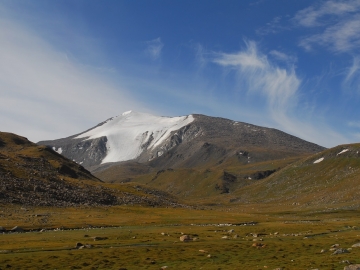
Figure 1: The sacred mountain of Mönkhkhairkhan Mountain
This year marks the 11th year of my fieldwork in the Altai Mountains, situated in the western part of Mongolia, which is my primary research site. From April 2016 to March 2017, I made six trips to my target research sites in the provinces of Khovd, Uvs, and Bayan-Ölgii. Apart from conducting research into human survival strategies in extreme environments, I was also successful in conducting fruitful studies through interactions with nature. The following is a report on my research activities.
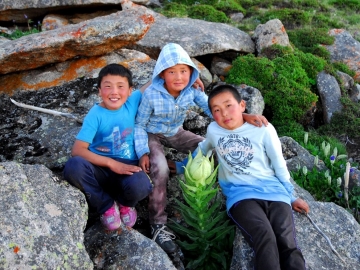
Figure 2: Vansemberuu, the “heavenly flower”
In the primary research site of Khovd Province where I stayed during the summer season in 2016 from July to August, I conducted studies mainly on the lifestyles of the nomads and the amount of labor that they undertake, focusing on the area at the foot of Mönkhkhairkhan Mountain (Elevation: 4,362m) (Figure 1), a sacred mountain that is among the three highest mountains in Mongolia. In addition to studying their everyday lives, I also had the opportunity to stay in the houses of the nomads known as “ger.” Desert rats and hedgehogs would occasionally enter the “ger” during the nights, and sometimes even jump around the top of the sleeping bag. A world of beautiful peaks, water, animals, and plants spread across the foot of Mönkhkhairkhan Mountain. In particular, the Vansemberuu (snow lotus) (Figure 2), a species of flower from the Saussurea family that is also known as the “heavenly flower” in Mongolia, blooms only in these lands, here in the Altai Mountains. It is also said that an “18-year old maiden” dwells in Mönkhkhairkhan Mountain as its guardian spirit and is revered together with the “heavenly flower,” making the mountain a spiritual site.
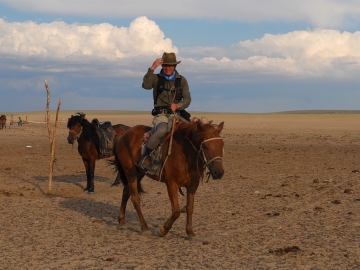
Figure 3: Scene of studies conducted in the desert land spreading across Tes
Uvs Province shares a border with Russia on the northern side of the Altai Mountains, and it was there that I conducted studies on survival strategies and adaptability to the harsh environment. When I asked to be introduced to the place in Mongolia that was the most difficult and harsh to live in, I was pointed to Tes, so I decided to travel there. In the local language, “tes” literally expresses the meaning of “endurance.” This is a place covered by spreading sand, almost resembling a desert (Figure 3).
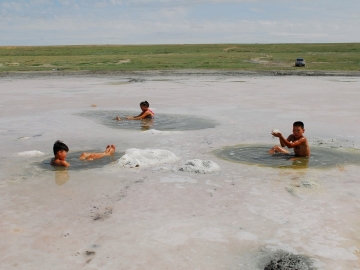
Figure 4: Uvs Nuur, Mongolia’s “Dead Sea”
Life is cruel here not only because of the scorching earth, but also because hordes of Mongolia’s famous Siberian mosquitoes plague this region, attacking people and livestock during the summer. If one were to go outdoors during the twilight hours, the entire body would quickly be covered by mosquitoes attacking in search of blood. As a result, it becomes impossible even for livestock to avoid the mosquitoes by remaining still in the camp. There is also a salt lake here, similar to the Dead Sea, which is used as a salt field, and is visited by people seeking health therapies (Figure 4).
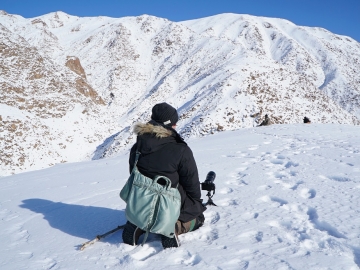
Figure 5: Scenes of ecological observation of the snow leopard
In the fieldwork conducted during the winter season of 2017 from January to February, I conducted an observation on the ecology of the snow leopard, as well as a study on folk culture. The study on the ecological behavior of the snow leopard, which included the tracking of life signs such as the location of its feces, urine sprays, and footprints (Figure 5), was conducted in tandem with the shooting of a documentary film. On our way to the point of observation, the car was driven aground countless times by snow and falling rocks, so we had to switch to using camels to carry our luggage midway through the journey. During the harsh period spent observing the snow leopard at the observation point, we spent the freezing nights in an observation hut covered in gaping holes (indoor temperature was as low as -25ºC). Despite the severe cold that we experienced every day, the skies were lit beautifully with stars every night (Figure 6).

Figure 6: Night skies over the Altai Mountains
It is definitely not easy to carry out fieldwork locally. The quantitative studies that have to be carried out repeatedly every day were a series of monotonous tasks and measurements, and can sometimes become a contest of endurance between concentration and perseverance. Even so, the Altai Mountains offered me the opportunity to become a good, independent fieldworker, and I am moved by a strong sense of mission to continue uncovering the secrets behind its natural environment and the lifestyles of the people.
Information
Visiting Fellows
WIAS invites distinguished, internationally active researchers from overseas. Through scholarly exchanges, seminars, and other activities jointly undertaken with Waseda researchers, WIAS contributes to the invigoration of the university’s research activities.
- April 1, 2017- April 30, 2017 KELLERHALS, Ruth; Professor, University of Fribourg, Department of Mathematics(Switzerland)
- May 1, 2017- June 1, 2017 NORNES, Mark Howard; Professor, University of Michigan, Department of Screen Arts and Cultures, Department of Asian Languages and Cultures(United States of America)
- June 1, 2017- June 30, 2017 ZATTONI, Alessandro; Professor, LUISS University, Department of Business and Management(Italy)
- June 20, 2017- July 20, 2017 LEE, Soohyung; Associate Professor, Sogang University, Department of Economics(Republic of Korea)
- July 1, 2017 – July 31, 2017 YIU, Wing Yee; Professor, Chinese University of Hong Kong, Department of Management(Hong Kong)
Please feel free to contact us.
Waseda Institute for Advanced Study (WIAS)
1-6-1 Nishi Waseda, Shinjuku-ku, Tokyo 169-8050, JAPAN
URL:https://www.waseda.jp/inst/wias/en/
TEL:03-5286-2460
FAX:03-5286-2470
E-mail:[email protected]


